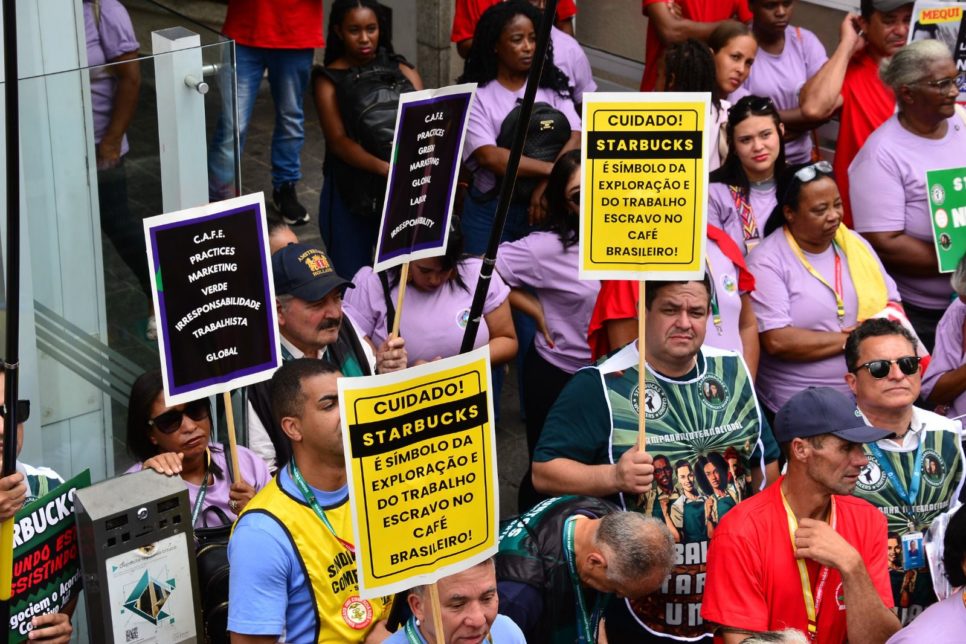An overview of the 40th session of the UN Human Rights Council
Significant moments during the session include the change in Brazil’s vote on Israel and a heated exchange between an ambassador and an ex-congressman during a parallel event

Civil society organisations and official representatives from member countries met at the 40th session of the UN Human Rights Council in Geneva, held from 25 February to 22 March. The event provided an opportunity to debate issues related to the current human rights situation around the world, such as the threat of authoritarian governments, state violence and environmental matters.
The Bolsonaro government’s first appearance at the Council featured controversial episodes, such as the change in voting on resolutions about Palestine and Israel and a heated discussion between Ambassador Maria Nazareth Azevedo and the ex-congressman Jean Wyllys, during a round table to discuss new forms of authoritarianism.
See below a summary of activities in which Conectas participated:
Read more
Fiscal measures and human rights
On 28 February, in a joint statement with other Brazilian organisations, Conectas highlighted the impact of recent fiscal austerity measures by the Brazilian government, such as constitutional amendment 95, enacted during the government of president Michel Temer, that has led to an increase in social inequality in the country, with restrictions to social rights. In the document the organisation stresses the need for the Brazilian government to confirm the visit to Brazil of the UN independent specialist on foreign debt, Juan Pablo Bohoslavsky, that was cancelled by the Temer government last year, when Bohoslavsky was to examine the impact of fiscal measures on social issues and on education and health.
>> Watch the reading of the statement
>> Read the text in full (in English)
MP 870
In a statement, On 8 March Conectas requested that the National Congress should remove from executive order 870/2019 the element of abusive, unconstitutional control of NGOS that allows the federal government the authority to “oversee, coordinate, monitor and accompany the activities and actions of international organisations and non-governmental organisations within national territory”. In the document the organisation also called for the UN Council to pay close attention to the threats to civil society contained in the executive order.
>> Watch the reading of the statement
>> Read the text in full (in English)
One year after Marielle’s death
On 13 March in front of diplomatic delegations from a number of countries around the world, the organisation called for the Brazilian government to make progress with investigations into the murder of the city councillor Marielle Franco and her driver Anderson Gomes. The speech took place one day after the Rio de Janeiro civil police force had announced the arrest of two men suspected of having participated in her execution, one year ago in March.
>> Watch the reading of the statement (YouTube – with Portuguese subtitles)
>> Read the text in full (in English)
Parallel Events
Conectas and its partner organisations held a series of events in parallel to the session. On 12 March there was a panel on the “Current situation of human rights in Brazil”, at which threats and obstacles to human rights defenders, indigenous peoples and the LGBT population in the country were discussed, as well as issues such as freedom of the press and social participation. On 15 March there was a debate called “New authoritarianism: the implications for human rights and civil society” in which the activist and former congressman Jean Wyllys participated. On this occasion, the ex-congressman was interrupted by the Brazilian UN Ambassador, Maria Nazareth Azevedo, as he was denouncing authoritarian actions by the current government.
Joint action
Conectas also joined with other organisations in letters addressed to UN special procedures. See below:
- Resolution on human rights in Iran
- International Service on the protection of environmental human rights defenders
Change in diplomatic tradition
In a historic change of position, Brazil broke with diplomatic tradition and voted in favour of Israel at the UN on two resolutions that concern territories being disputed with Syrians and Palestinians. The new support happened on the evening of the first presidential visit to Israel, signalling political alignment between the Brazilian and Israeli governments. In another vote, on the expansion of Israeli settlements in occupied territories, Brazil abstained.
Other highlights
During the 40th session, Conectas and another nine Brazilian civil society organisations met with Michelle Bachelet, UN High Commissioner for Human Rights, with a view to discussing the human rights situation in Brazil with president Jair Bolsonaro in power. On this occasion constant threats and intimidation by the president to journalists and the LGBT population were relayed, as well as the environmental crimes in Mariana and Brumadinho.
In a speech at the High Level Segment, the Minister for Women, Family and Human Rights, Damares Alves, vouched for what she called “the Brazilian government’s unswerving commitment to the highest levels of human rights”, but she did not make any comment on the murder of the activist Marielle Franco, in the days before the one year anniversary of her death. Immediately afterwards, she defended the right to life from conception, making her stand on the issue of abortion clear.
Other highlights at the session were approval of the resolution on environmental defenders, that calls for states to take concrete actions to protect and defend activists. And on the human rights situation in Nicaragua where the government was recommended to release all those detained illegally or arbitrarily.






